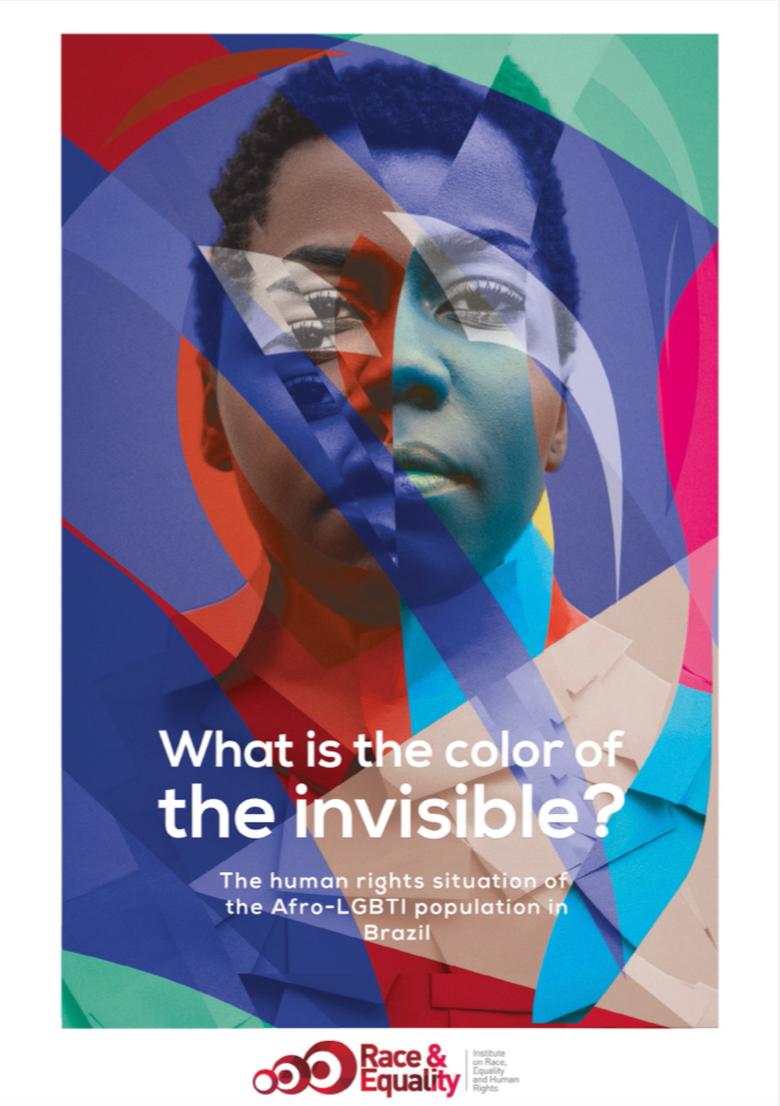Race and Equality publishes the dossier “What is the color of the invisible? The human rights situation of the Afro-LGBTI population in Brazil” in English
The International Institute on Race, Equality and Human Rights (Race and Equality) is pleased to announce that the English version of the dossier “What is the color of the invisible? The human […]

The International Institute on Race, Equality and Human Rights (Race and Equality) is pleased to announce that the English version of the dossier “What is the color of the invisible? The human rights situation of the Afro-LGBTI population in Brazil” is now available on the organization’s website. Originally launched in Brazil in November 2020, the report documents human rights violations against the Brazilian Afro-LGBTI population, highlights a lack of official data on this crucial subject, and calls on Brazilian society to recognize the communities’ particular struggles and demands. The dossier features a preface written by the UN Independent Expert on Sexual Orietation and Gender Identity (IE-SOGI), Victor Madrigal-Borloz.
About the dossier:
In response to constant reports of human rights violations against Afro-LGBTI Brazilians and to a lack of data about their situation, Race and Equality conducted a thorough investigation, meeting with civil society organizations and focus groups to discuss the systematic injustices plaguing this community. The dossier includes chapters on the murders of LGBTI people, access to justice, police violence, access to health, access to education, and access to work. The dossier demonstrates that structural racism in Brazil leads to public discussions of LGBTI rights that neglect the issues of race and racism, rendering the Afro-LGBTI population invisible. As a result, systematic racism continues to produce inequalities and harm Afro-LGBTI Brazilians’ chances for a decent and dignified life.
Isaac Porto, author of the report, highlights the urgent need to incorporate race into Brazil’s dialogue on LGBTI rights. In Brazil, the national myth of “racial democracy,” which presents white Brazilians’ perspectives and values as universal, has resulted in Afro-Brazilians being silenced and marginalized in all spheres, including the LGBTI community. Porto points out that the disparities between white and Afro-Brazilian LGBTI people’s experiences become even more stark when examining the experiences of trans Brazilians. According to Porto,
“It is clear that Afro-LGBTI people are the population most impacted by murder in Brazil, are the hardest-hit by police violence, and face the greatest difficulties in accessing justice, health, education, and work. It is essential to strengthen Brazilian organizations and activists so that they can raise awareness about the human rights situation of LGBTI Brazilians and about their own work to combat the myriad and perverse violations of their rights.”
Based on the findings of Race and Equality’s research, including extensive feedback from LGBTI civil society organization, the dossier concludes with a series of recommendations for the Brazilian State, international human rights organizations, civil society, and government agencies. Among them are highlighted:
1 – Ratification of the Inter-American Convention against Racism, Racial Discrimination and Related Forms of Intolerance and ratification of the Inter-American Convention Against All Forms of Discrimination and Intolerance.
2 – The creation of a concrete plan to combat LGBTI-phobic violence in Brazil, including an intersectional approach that will combat the racist and LGBTI-phobic violence against Afro-Brazilians.
3 – Initiatives from the Ministry of Labor to combat discrimination against Afro-LGBTI workers in hiring, promotion, pay, and working conditions.
4 – Commitments from all relevant stakeholders to support civil society organizations as they work to document the murders of LGBTI people, assurances that these organizations will not face unnecessary bureaucratic obstacles, and respect for their work from the government.
Download the dossier in English: Link
View a recording of the dossier’s launch, featuring speakers from Brazilian civil society: http://bit.ly/350lGF5

